"Innovative Regenerative Braking System: Revolutionizing Energy Efficiency in Automobiles through Advanced Power Management"
Introduction
The innovative regenerative braking system project aims to revolutionize energy efficiency in automobiles by harnessing the power of kinetic energy that is typically lost during traditional braking methods. By incorporating specialized motors, unique tires, and intricate mechanical designs, this system seamlessly converts braking energy into electricity, which is then stored for future use in the vehicle's battery. This cutting-edge technology not only improves fuel economy but also reduces overall energy waste, making it a sustainable solution for modern transportation challenges.
Utilizing Opto-Diac & Triac Based Power Switching modules, this project showcases advanced power management techniques that enhance the effectiveness of the regenerative braking system. Additionally, the integration of API and DLL modules further enhances the system's functionality and performance, setting it apart as a standout innovation in the field of automobile engineering.
Under the categories of Automobile, Electrical thesis Projects, and Mechanical & Mechatronics, this project stands as a testament to the intersection of technology, sustainability, and ingenuity. By combining elements of electrical and mechanical engineering, it offers a holistic solution to the pressing need for energy-efficient transportation options. With its potential applications in electric trains, hybrid electric vehicles, and beyond, this project represents a pioneering step towards a greener, more sustainable future in the automotive industry.
Applications
The project's focus on developing an energy-efficient regenerative braking system has diverse applications across various sectors. In the automotive industry, the implementation of this innovation could revolutionize the way vehicles operate by significantly reducing energy wastage during braking, coasting, and descending slopes. Electric trains and the latest electric cars already utilize regenerative braking systems, showcasing the practical relevance and impact of this technology in enhancing fuel economy and sustainability. The integration of specialized motors, power switching components, and battery storage in the design paves the way for improved energy efficiency and reduced carbon emissions in the transportation sector. Moreover, the project's emphasis on converting kinetic energy into electricity for storage and later use highlights its potential in contributing to renewable energy solutions.
Overall, the project's features and capabilities lend themselves to applications in the automobile, electrical, and mechanical engineering fields, showcasing its versatility and potential to address real-world challenges related to energy conservation and sustainable transportation.
Customization Options for Industries
The project's unique regenerative braking system can be customized and adapted for various industrial applications within the automotive and transportation sectors. In the automobile industry, this innovation can be integrated into electric cars, hybrid vehicles, and public transportation systems to improve energy efficiency and reduce fuel consumption. The regenerative braking system can also be implemented in industrial machinery, such as cranes, forklifts, and conveyor belts, to recover and reuse kinetic energy during braking or deceleration processes. Additionally, this project can benefit the renewable energy sector by incorporating regenerative braking technology into wind turbines and solar tracking systems to enhance energy storage capabilities. The scalability and adaptability of this project allow for versatile applications in different industries, providing opportunities to optimize energy usage and promote sustainability in various industrial settings.
Customization Options for Academics
The regenerative braking system project kit provides an excellent opportunity for students to gain a deeper understanding of energy conservation and efficiency in the context of automotive engineering. By exploring the concept of reusing kinetic energy during braking, students can develop valuable skills in designing and implementing innovative solutions to reduce waste and improve performance. The kit's modules, such as Opto-Diac & Triac Based Power Switching, provide a hands-on learning experience in power electronics and control systems, while the project categories of Automobile, Electrical thesis Projects, and Mechanical & Mechatronics offer a wide range of project ideas for students to explore. From designing a regenerative braking system for electric vehicles to optimizing energy recovery in hybrid cars, students can undertake diverse projects that challenge their critical thinking and problem-solving abilities. Overall, this project kit serves as a valuable educational tool for students to apply theoretical concepts in a practical setting and gain real-world experience in sustainable engineering practices.
Summary
The regenerative braking system project revolutionizes energy efficiency in automobiles by converting braking energy into electricity. Utilizing Opto-Diac & Triac Based Power Switching modules and advanced power management techniques, this innovative technology enhances fuel economy and reduces energy waste. With applications in Electric Vehicles, Hybrid Automobiles, Smart City Infrastructure, and Sustainable Public Transport, it addresses pressing environmental challenges in the automotive industry. By combining electrical and mechanical engineering, it offers a sustainable solution for modern transportation needs. This project marks a pioneering step towards a greener, more sustainable future in the automotive sector, showcasing innovation and ingenuity.
Technology Domains
Automobile,Electrical thesis Projects,Mechanical & Mechatronics
Technology Sub Domains
Power Generation(Solar, Hydral, Wind and Others),Core Mechanical & Fabrication based Projects,Mechatronics Based Projects,Breaking System Based Projects
Keywords
regenerative braking system, kinetic energy, energy-efficient, friction brakes, electric trains, electric cars, energy recovery mechanism, battery storage, motors as brakes, energy conversion, LEDs, power supply, Opto-Diac, Triac Based Power Switching, API, DLL, automobile, electrical thesis projects, mechanical, mechatronics
| Shipping Cost |
|
No reviews found!






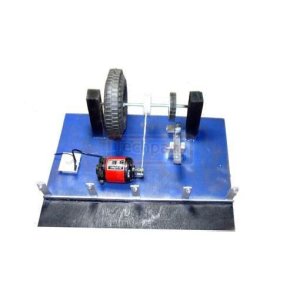
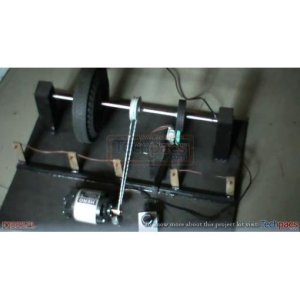











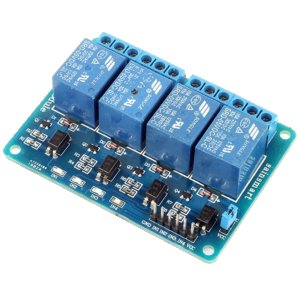





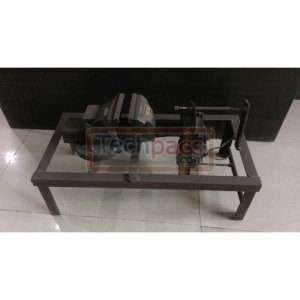

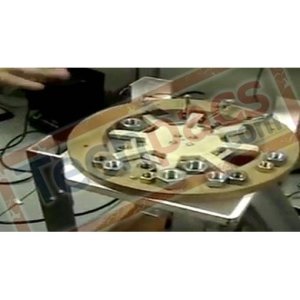

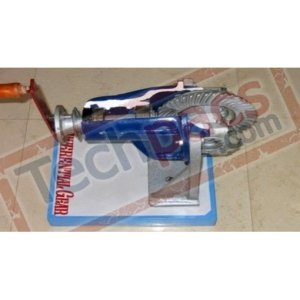































No comments found for this product. Be the first to comment!